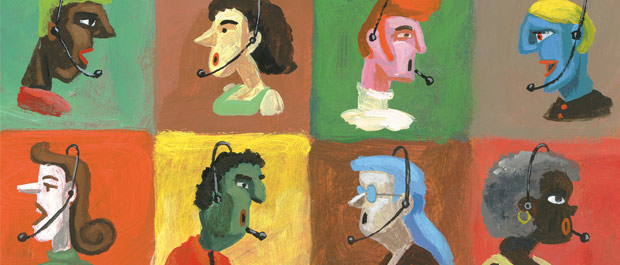It’s a cliché of modern politics that a candidate for president won’t do anything—even choose a necktie—without first consulting poll data. True, both the Obama and Romney campaigns employ in-house pollsters to measure the subtlest aspects of message strategy. But do the results of those polls have undue influence on their political beliefs? Sunshine Hillygus, an associate professor of political science and an expert on polling, offers her insights:
Candidates don’t change their views in response to a poll. Politicians conduct polls not to figure out their views on the issues but to figure out if and how they should talk about their views to particular groups in the electorate. They’re trying to learn which of their views resonate with different groups of voters so they can develop a strategy for targeting those groups for mobilization and persuasion.
On the one hand, some people might find it reassuring that politicians don’t pander to the polls. We are quick to criticize those politicians who change their minds —there is perhaps no worse insult than to be labeled a flip-flopper or waffler. In this campaign, Obama’s “evolution” on gay marriage and Romney’s shifting position on health-care reform have been fodder for attack. We clearly want politicians who are principled and don’t follow the whims of public opinion.
Yet there is a tension in the democratic process because our system of government only works if elected officials are responsive to the public. We should value elected officials who listen to and act on the views of their constituents, especially in light of congressional reelection rates that exceed 90 percent. What Washington needs right now are pragmatic politicians who understand the wants and needs of their constituents and are willing to compromise and negotiate.

Share your comments
Have an account?
Sign in to commentNo Account?
Email the editor